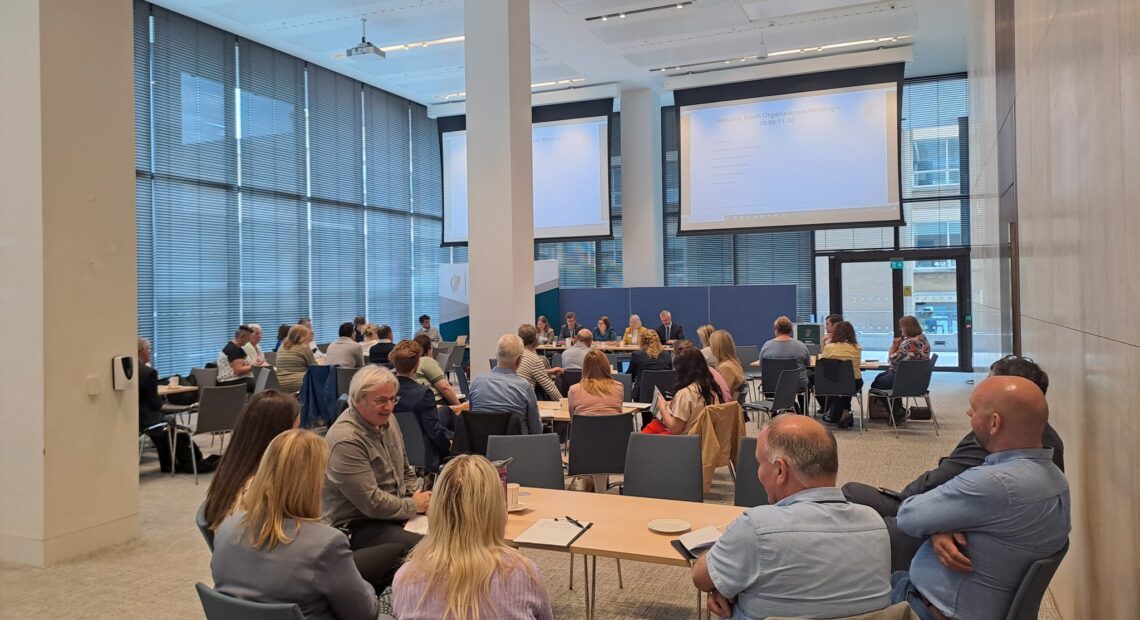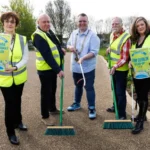The Department of Children, Equality, Disability, Integration and Youth has published a new Growing Up In Ireland ‘Key Findings’ report on the lives of 13 year olds.
The report examines how they are faring in important areas of their lives; such as education, physical health, socio emotional wellbeing, pastimes and family circumstances. It also looks at how life has changed for them since they were last interviewed by Growing Up in Ireland, at age 9, and follows up on a special Growing Up in Ireland Covid survey conducted in 2020 to see how they were faring during the pandemic restrictions.
These Key Findings are the first Growing Up in Ireland report to be published since the study moved from the ESRI to the Department of Children, Equality, Disability, Integration and Youth and the Central Statistics Office in January this year.
The report draws on a survey comprised of telephone interviews of 6,375 13-year-olds and their caregivers during the period July 2021 – June 2022, during which time, Covid pandemic restrictions fluctuated.
This group of children were born in 2008 and their early years would have been during a recessionary period. They were among the first group of children to avail of the free pre-school year. Their middle childhood would have seen significant social changes in Ireland such as the marriage equality referendum. They have also grown up in a time of significant technological changes; and were born a few months after the first iphone was launched in 2007. Growing Up in Ireland has collected data on their experiences from age 9 months to age 13, and this data helps to inform policy makers across Government develop policies and services for children and young people about their lives and their support needs.
Key Findings in the Report
School and Education
- At age 13, the vast majority of these children had made the transition to secondary school and almost all agreed that they had made new friends (97%), were getting on well with schoolwork (92%) and were settling in well (96%).
- 73% of 13 year-olds expected to achieve a degree.
- Overall 44% of 13 year olds travel to school by car, 26% by school bus, 21% walk and 4% travel by public transport and 4% cycle but patterns varied depending on how far from school children lived.
Socio-Emotional Wellbeing and Health
- The majority of 13-year-olds were healthy, felt supported by friends and family, and participated in a range of pastimes.
- However, some young people were struggling in one or more areas. Girls were much more likely than boys to have low mood (21% compared to 8%), lower self-esteem and parent observed symptoms of emotional distress.
- While it is recommended that young people consume at least five portions of fruit and vegetables per day, just 11% of 13-year-olds achieved that target on a typical day, according to their mothers and usually two or three portions were eaten (53% of Young People)
Household Circumstances
- One-parent families were more likely to face socio-economic challenges such as being in the lowest income quintile, being in rented housing, having difficulty making ends meet and not having degree-level education.
- Young People living in households with characteristics of socio-economic disadvantage (such as low income, low parental education or lone parenthood) were worse off on several indicators such as lower participation in organised team sports, less access to computers suitable for home learning and being more likely to have a chronic health condition.
- Families who were in the lowest income quintile when their child was aged 9 were the least likely to say they were better off by the time the child was 13 (35%). In contrast, over half of families who were in the highest income group when their child was 9 said they were better off by the time the child was 13. Remaining families were either ‘about the same’ or ‘worse off’.
Sources of Support
- 83% of 13 year olds said they would talk to a parent if they had a problem or needed support and 78% said a friend. Just under half, 44% said they would talk to a sibling, while 39% said they would talk to a grandparent.
Pastimes
- 78% of 13-year-olds engaged in some form of structured pastimes at least once a week. Of these, team sports were the most popular, with 70% of young people participating.
Launching the Key Findings the Minister for Children, Equality, Disability, Integration and Youth, Minister Roderic O’Gorman said, “on reading this report I was struck by the complexity of the social world of 13-year-olds. They were dealing with the usual ups and downs of long-standing relationships with parents and siblings while negotiating multiple new relationships with teachers and peers as a result of the transition to secondary school. This was after a prolonged period of reduced social interactions due to Covid and also in the context of simultaneously managing interactions online and face-to-face.”
“It was heartening therefore to read that the majority are doing well and have settled well into school. The report also highlights where more work is required to ensure that all children have the possibility to flourish and reach their potential. The key findings show the impact of socio-economic inequalities on children’s lives, and this data will inform priority work across Government to tackle child poverty. Growing Up in Ireland will be visiting this group again when they are 17 years of age and this will give us an opportunity to see how government services and policies addressing poverty are working.”













